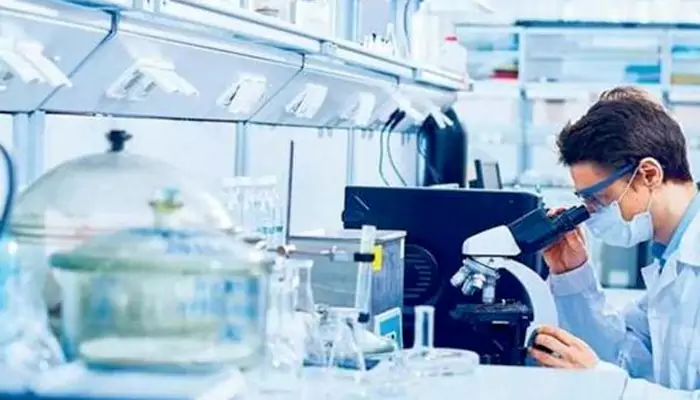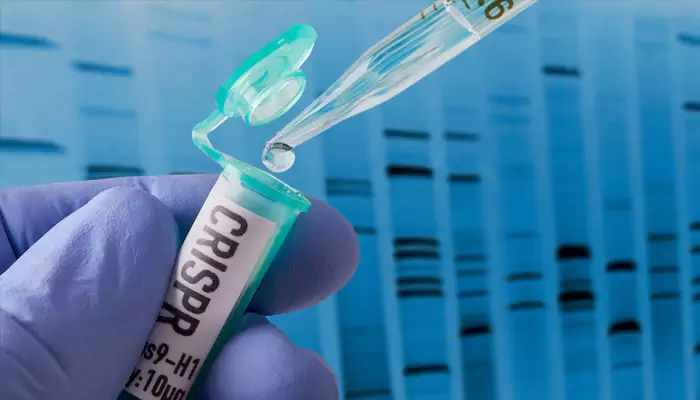Biotechnology in Agriculture: Enhancing Crop Yield and Sustainability
Do you want to know how biotechnology revolutionizes agriculture for better yields and sustainability?
- Orna Ghosh
- 13 May, 2024
- 2 mins ago

Biotechnology in Agriculture: Enhancing Crop Yield and Sustainability
Do you want to know how biotechnology revolutionizes agriculture for better yields and sustainability?
In today's dynamic landscape of agriculture, catering to the escalating global demand for food presents a formidable challenge. However, a beacon of hope emerges in the form of biotechnology- positioning itself as a transformative force. Modern farming, caught between the imperative of feeding an ever-expanding global population and grappling with mounting environmental concerns, finds a promising ally in biotechnology. This cutting-edge field not only confronts these challenges head-on but also unlocks the potential to boost crop yield while concurrently championing sustainability.
It's a revolutionary paradigm shift that ensures food security and places the environment at the forefront of agricultural advancements.
Breaking Ground with Biotech
Venturing on the frontier of agricultural innovation, the integration of biotechnology signals a paradigm shift, employing sophisticated genetic engineering techniques to recalibrate the very DNA of crops. This transformative approach empowers scientists to fine-tune crops, augmenting them with highly coveted traits that remain key to sustainable and resilient agriculture. Among these desirable traits is heightened resistance to pests, ensuring crops thrive without succumbing to infestations. Equally significant is the newfound tolerance to harsh environmental conditions, enabling crops to endure and flourish in challenging climates, including droughts.
However, the potential of biotechnology extends beyond mere survival. Picture a future where crops demand fewer pesticides, contributing to reduced environmental impact and promoting eco-friendly farming practices. Envision fields resilient to water scarcity, where crops endure droughts and deliver enhanced nutritional benefits to consumers. This tantalizing prospect captures the essence of biotechnology's promise- a promise to revolutionize agriculture by creating crops that are harder, more sustainable, and nutritionally enriched, ensuring a resilient and nourishing future for global food production.
Boosting Crop Yield
One of the primary advantages of biotechnology in agriculture is its ability to boost crop yields significantly. Through genetic modification, crops can be engineered to resist diseases and pests, reducing the need for chemical pesticides. It not only safeguards the health of the crop but also minimizes environmental impact and lowers production costs for farmers.
Moreover, biotechnology enables the development of crops with enhanced tolerance to adverse weather conditions. Drought-resistant varieties, for instance, can thrive in regions with limited water resources, contributing to increased agricultural productivity in arid areas. This resilience to environmental challenges is crucial for ensuring a stable and abundant food supply.
Nurturing Sustainability
Biotechnology plays a pivotal role in promoting sustainability in agriculture. By reducing the reliance on chemical inputs, genetically modified crops contribute to soil health and biodiversity conservation. Traditional farming practices often involve the use of large amounts of chemical fertilizers and pesticides, which can have detrimental effects on ecosystems. Biotechnology offers a more sustainable alternative, aligning with the principles of eco-friendly and responsible farming.
Additionally, genetically modified crops can be tailored to have improved nutrient profiles, addressing malnutrition concerns in certain regions. For instance, biofortified crops with enhanced levels of essential vitamins and minerals can help combat dietary deficiencies, providing a sustainable solution to improve public health.
As we conclude, biotechnology in agriculture is not just a scientific breakthrough; it's a potential lifeline for a planet of sustainable and efficient food production. By harnessing the power of genetic modification, we can cultivate a future where crops thrive, ecosystems flourish, and our growing population get nourished without compromising the health of the planet.






